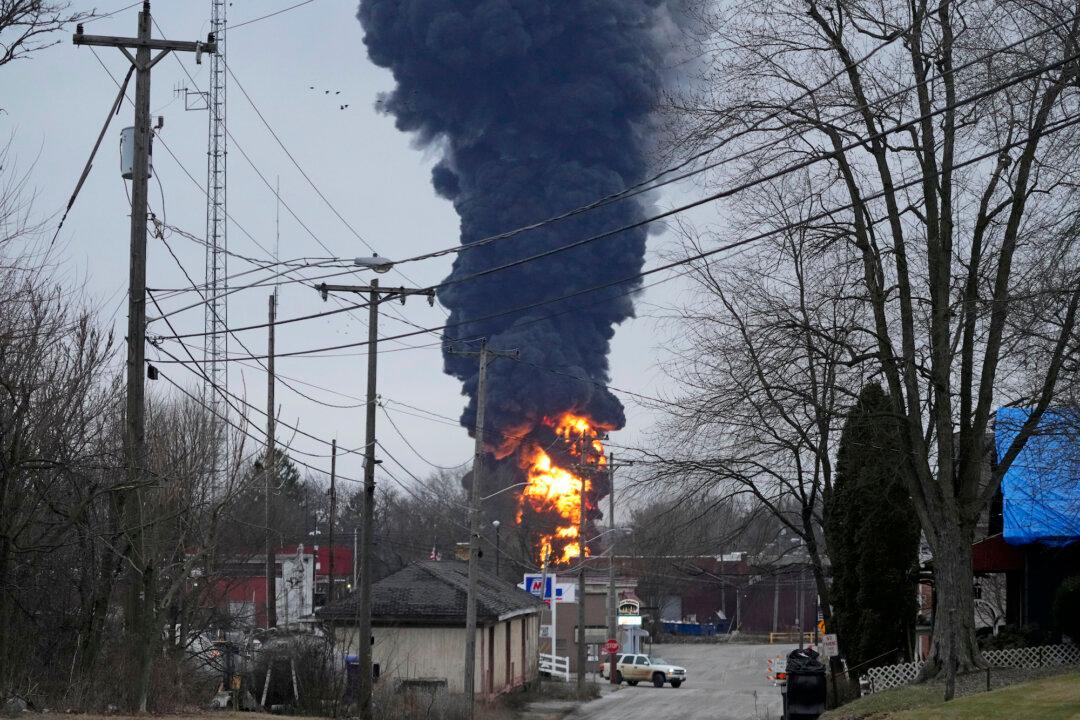Like many residents who live within a few miles of Norfolk Southern Railway’s Feb. 3 train derailment, Jerry Corbin evacuated before the railroad decided to conduct a controlled burn of five freight cars containing the toxic vinyl chloride on Feb. 6.
When he returned to his home in Darlington Township, Pennsylvania—around 1.4 miles from the crash site—Corbin discovered two surprises. Black debris that resemble ash was strewn all over his yard and on his roof, and an “undetonated blasting cap” landed in a pasture near his house.





